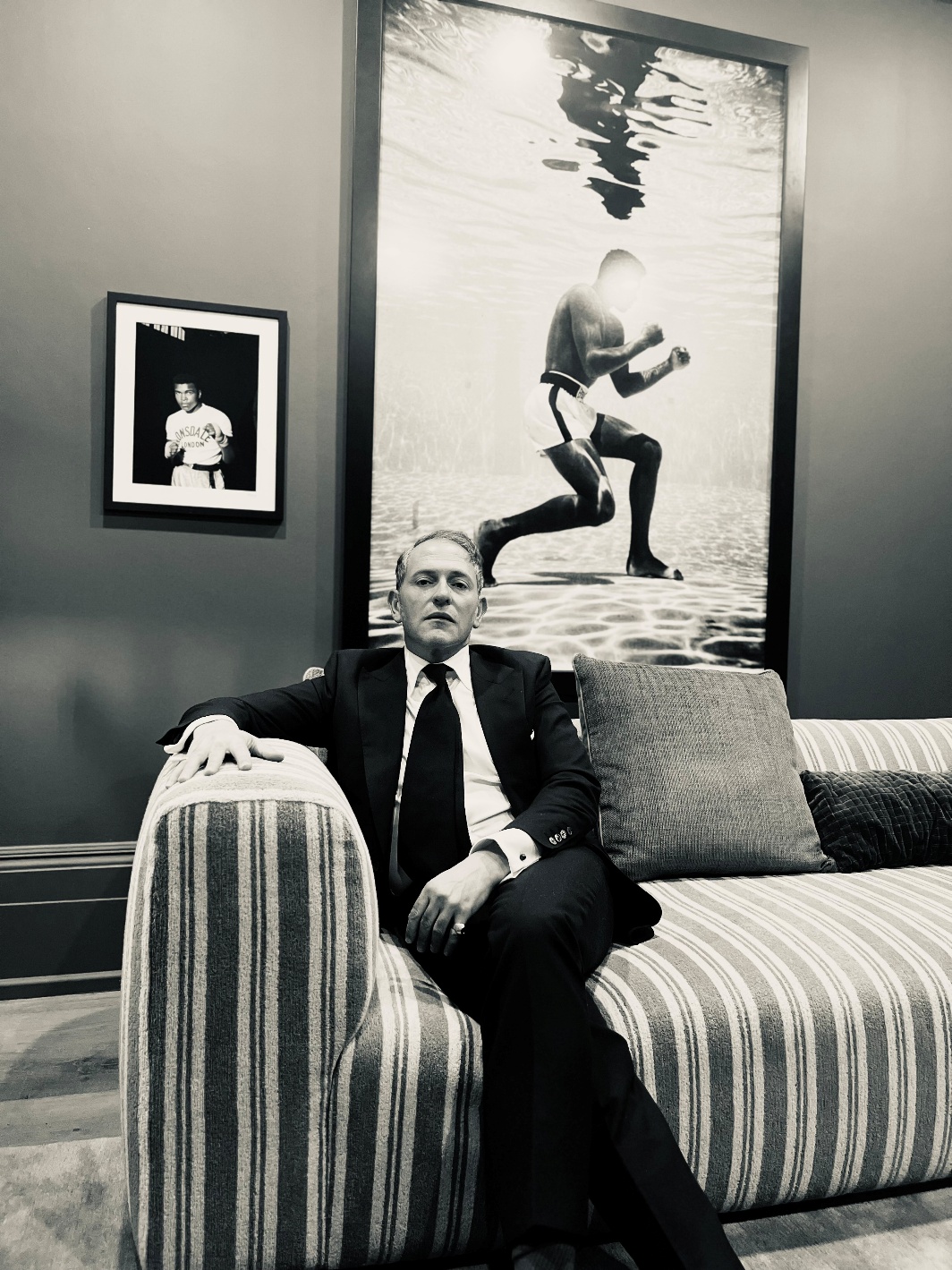Paul Diamond has spent a lifetime building, losing, and rebuilding — often far from the spotlight. Today, he is a London-based strategic investor with more than two decades of experience in property, financial services, and private equity. Through his family office, he backs what he calls high-trust ventures that deliver high-stakes returns.
“I invest in outsiders who wish to build what the culture hasn’t caught up with yet,” he says in his public biography. “Over the past 25 years, I’ve invested capital across financial services, property, aviation, and renewable energy — often before the spotlight arrives. I act where others hesitate. I enter early, think long and fast, stay quiet.”
That last phrase — stay quiet — captures the philosophy that runs through Diamond’s career. He is a man who has learned the hard way that the real game of wealth is not visibility but endurance.
Lesson One: Loyalty at Any Cost
Long before he entered finance, Diamond was marked for success. A star pupil and athlete, head boy in primary school, and deputy head boy in high school. Financial independence came early; by his mid-teens, he was supporting himself.
But the defining influence was personal, not professional. That quest for approval shaped what he calls his core pattern: loyalty at any cost, high tolerance for risk, and the subjugation of personal needs.
Diamond dissolved a thriving business and used his own fortune to free them. The choice nearly destroyed him financially, but it set the template for how he would live and lead.
Diamond’s instinct for fierce loyalty later translated into his approach to business partnerships. He enters ventures early, aligns with people he trusts, and stays committed long after others have stepped back. His early investments in South Africa’s Black Economic Empowerment initiatives — including the purchase of a radio station, a paper-supply business, and a pioneering Black-owned insurance company — reflected not only commercial foresight but also personal conviction.
His resume grew quickly: a bank launch, Radio Station, fashion-industry consolidations, a technology venture with the University of Pretoria, and property and finance deals that straddled continents.
But loyalty and risk are twins. Both lift and test those who practice them.
Lesson Two: Risk, Collapse, and the Quiet Rebuild
Diamond’s boldest gamble took him into Zimbabwe’s gold sector. With no mining experience, he set out to rehabilitate failing operations and, for a time, succeeded. Then politics intervened. As the country’s legal order unraveled, his investment collapsed.
His private life became the crucible for a second reinvention. What became his quiet but most powerful driver was the protection of his children’s respect and the vision of securing a future in which his children would be proud of him and his achievements. The same discipline that once fueled deal-making now turned inward: rebuilding not for acclaim, but for legacy.
The recovery was swift and strategic. He launched a property and investment firm. He built a multifamily property-development company in New York, invested in the Comair-British Airways Africa franchise, and made what would become a defining bet on renewable energy — a unicorn deal that yielded transformational wealth.
The period also revealed another side of his resilience. Diamond led a lawsuit against financier and predator Sidney Frankel, a case that led to a constitutional change in South Africa that removed time limits from survivors of sexual abuse pursuing criminal charges. Dubbed the “Frankel Eight” and later cited in the Harvard Law Review, this historic legal victory showed his capacity to turn crisis into structural reform. It was, as some describe it, a masterclass in persistence under pressure.
Lesson Three: The Power of Ethical Precision
Diamond’s present-day investments reflect a different kind of ambition — measured, ethical, and quietly global. He is now a principal backer of one of Europe’s most successful renewable-energy ventures, while operating property holdings in New York and London.
He describes his current focus in terms of “building platforms built on ethical principles, strategic precision, and cultural contribution.”
Colleagues say his influence lies not in dominance but in calibration — the ability to see strengths in others before they see them themselves. His own profile notes that he “possesses an extraordinary, intuitive ability to see latent strengths and strategic potential in people” and “never uses this insight for personal advantage.” Instead, he aligns talent so that “their natural gifts are magnified, creating shared success.”
That instinct has become the cornerstone of his leadership style. Those who work with him describe a man of contrasts: “a velvet glove over a steel fist.” Kindness and wit when it serves; precision and steel when it must.
He distills it to a single line: “I partner with founders who resonate with my vision, building platforms that generate attention, but do not chase it.”
It is a philosophy rooted in hard-won experience — the belief that sustainable power is quiet power, and that success without integrity is just noise.
The Pattern (and Secret) Behind Paul Diamond
Paul Diamond’s life, viewed across its full arc, reads like an extended study in controlled volatility. Early triumphs gave way to collapse; collapse became the catalyst for reinvention. Each chapter reflects the same underlying equation: loyalty, risk, and renewal.
Paul Diamond is the ultimate survivor and an empowered strategic leader. The description fits. Whether structuring one of South Africa’s first Black-owned insurance companies, weathering reputational attacks, or redefining renewable-energy investment in Europe, Diamond has operated from a consistent inner compass — loyalty refined by learning and resilience sharpened by loss.
Today, as he continues to expand his holdings and develop a personal platform for future writing and counsel, he remains what he has always been — a strategist who acts before the spotlight and exits long after it fades.
“I’m a private signal,” he says. “Where I stand, things shift.”
That may be the most succinct summary of Paul Diamond’s career — a reminder that in a world addicted to visibility, the most enduring influence often moves in silence.



